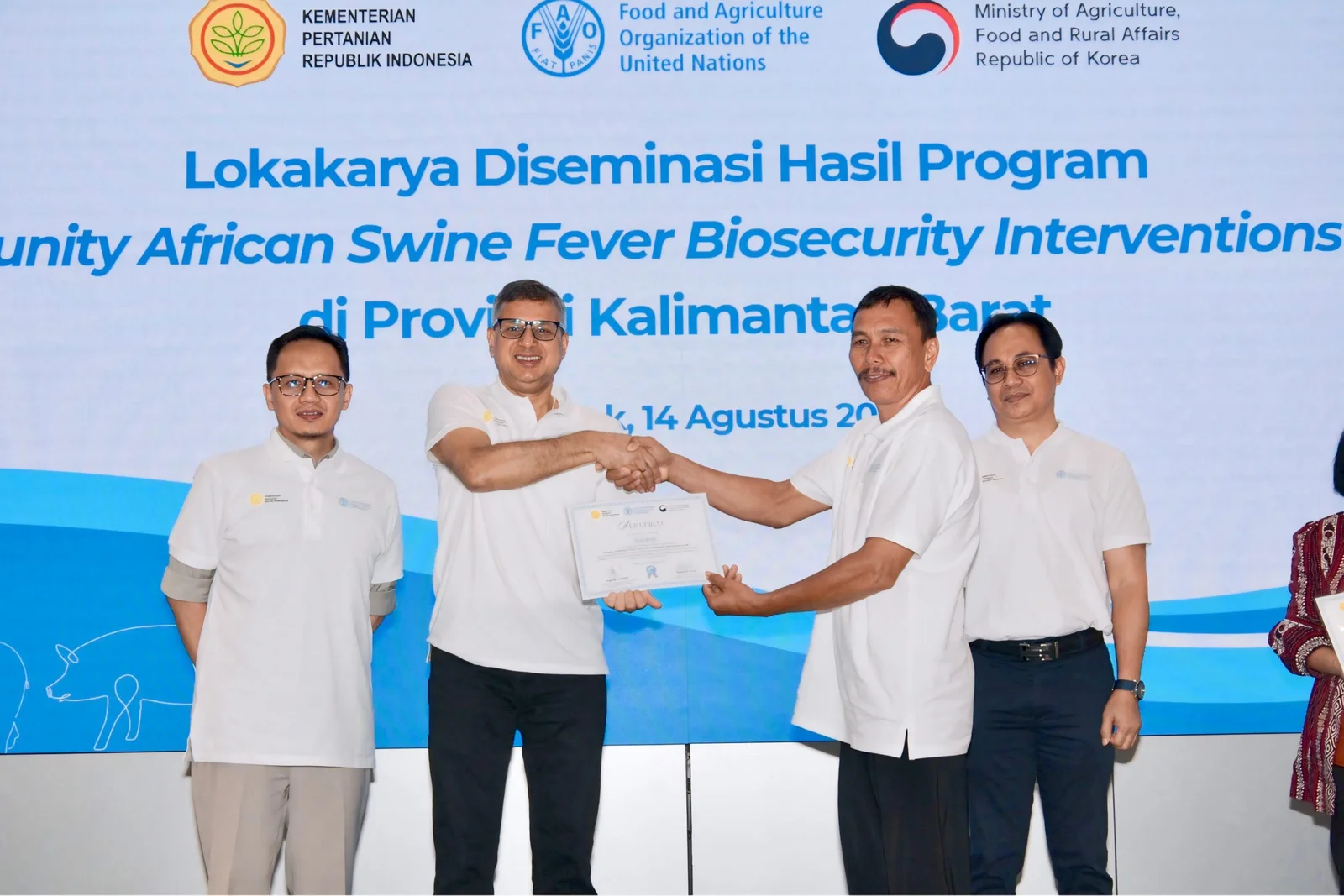
Around 80% of pig population in the province is managed by small-scale farmers, making community empowerment key to ASF prevention.
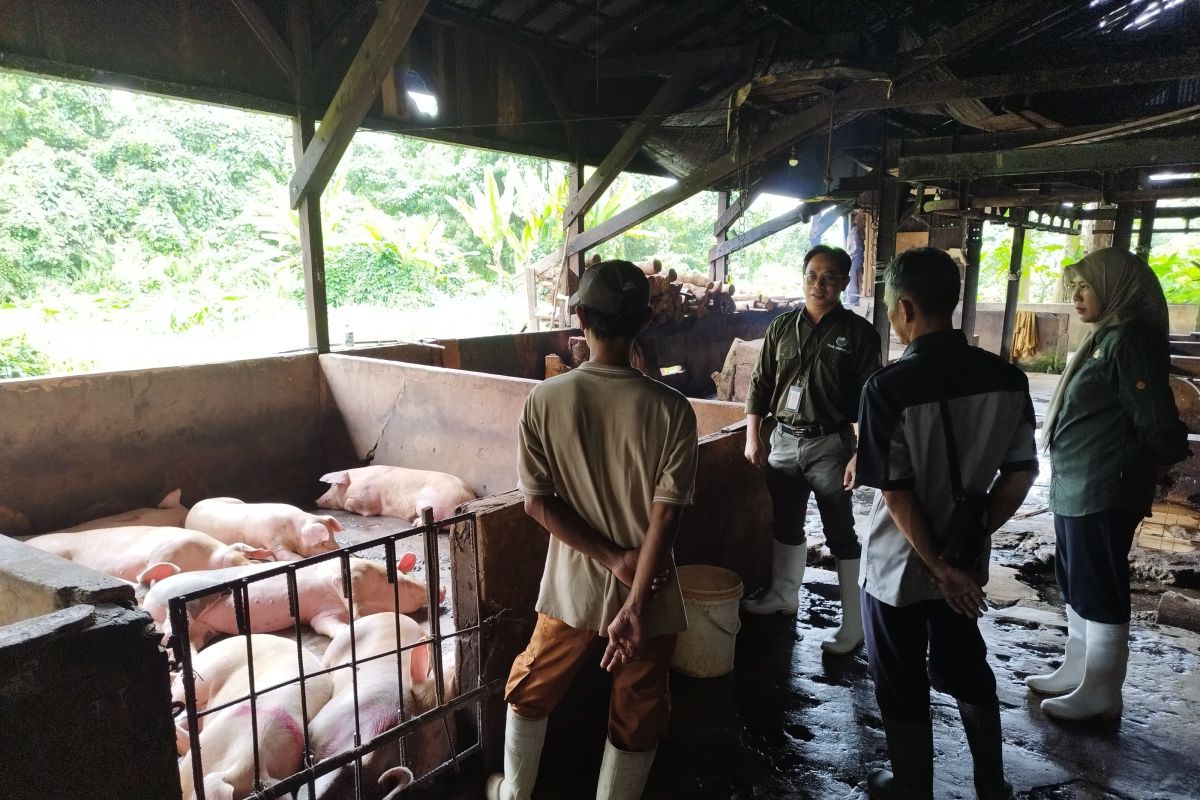
Indonesia’s Agriculture Ministry and the Food and Agriculture Organization (FAO) have successfully implemented a program called Community African Swine Fever Biosecurity Intervention (CABI) in West Kalimantan province.
African swine fever (ASF) is a contagious viral disease that affects both domestic and wild pigs. Outbreaks can reduce pig populations, disrupt pork production and trade, and lead to economic losses that threaten food security and the livelihoods of small-scale farmers.
The CABI program in West Kalimantan province provides hands-on training, distributes biosecurity materials and equipment, and offers simple guidelines to help farmers implement ASF prevention measures effectively.
Heronimus Hero who heads the province’s Agriculture Service Agency said the CABI program focuses on protecting small-scale pig farmers by raising their awareness and implementing biosecurity measures in areas vulnerable to ASF.
This program, he added, is also supported by the Korean Ministry of Agriculture, Food, and Rural Affairs.
Thanks to the CABI program, Mr Hero said, “We can strengthen disease prevention at the community level and lay the groundwork for ongoing efforts.”
The provincial government is supporting the expansion of this program to other regencies, such as Singkawang.

The CABI program focuses on protecting small-scale pig farmers.
West Kalimantan province currently has the 6th largest domestic pig population in Indonesia. Approximately 80% of this population is managed by small-scale farmers, making community empowerment key to ASF prevention in the province.
Agung Suganda, Director General of Livestock and Animal Health at the Agriculture Ministry, emphasized the importance of sustaining biosecurity practices after the CABI program concludes in West Kalimantan province.
“Biosecurity is essential. This program has shown that practical and affordable measures can make a real difference in preventing ASF, especially at the farm level. These efforts will be expanded and replicated nationally as part of our national animal health strategy,” said Dr Suganda.
Meanwhile, Rajendra Aryal, FAO Representative for Indonesia and Timor-Leste, highlighted that the CABI program represents a long-term investment for livestock farmers.
“CABI has built local capacity and promoted low-cost biosecurity practices, bringing a tangible impact in protecting pigs and securing farmers’ livelihoods. FAO will continue to support Indonesia in strengthening its animal health system,” Mr Aryal stated.
Subscribe now to the technical pig magazine
AUTHORS
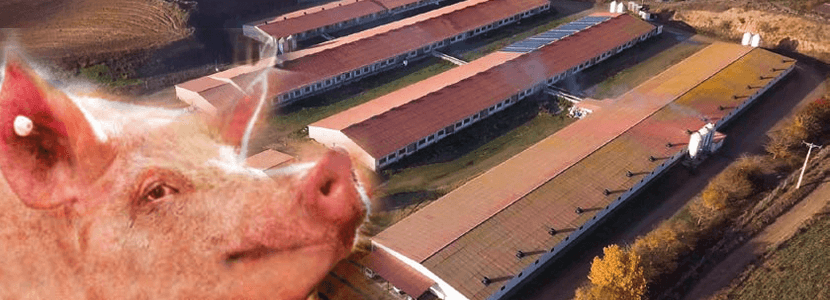
Bifet Gracia Farm & Nedap – Automated feeding in swine nurseries

The importance of Water on pig farms
Fernando Laguna Arán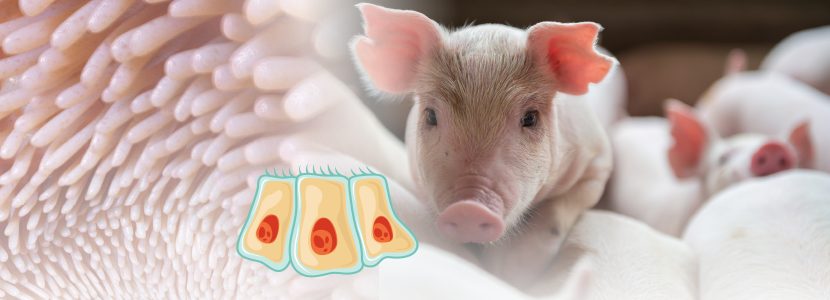
Microbiota & Intestinal Barrier Integrity – Keys to Piglet Health
Alberto Morillo Alujas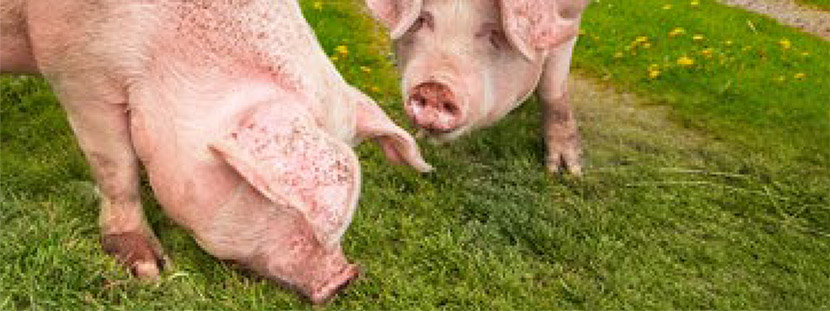
Impact of Reducing Antibiotic use, the Dutch experience
Ron Bergevoet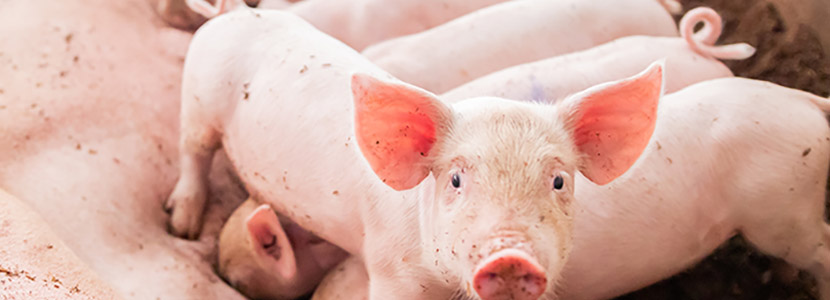
The keys to successful Lactation in hyperprolific sows
Mercedes Sebastián Lafuente
Addressing the challenge of Management in Transition
Víctor Fernández Segundo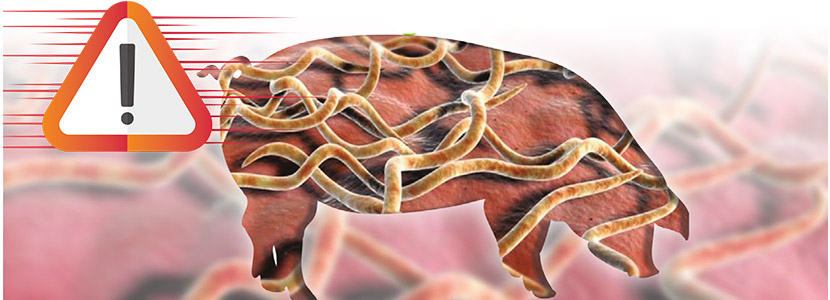
Dealing with the rise of Swine Dysentery
Roberto M. C. Guedes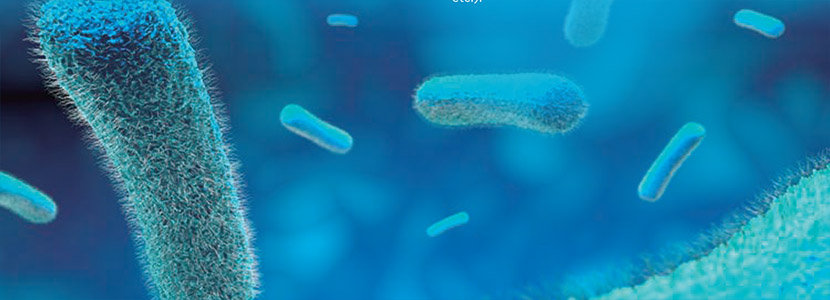
Actinobacillus pleuropneumoniae – What are we dealing with?
Marcelo Gottschalk
The new era of Animal Welfare in Pig Production – Are we ready?
Antonio Velarde
Gut health in piglets – What can we do to measure and improve it?
Alberto Morillo Alujas
Interview with Cristina Massot – Animal Health in Europe after April 2021
Cristina Massot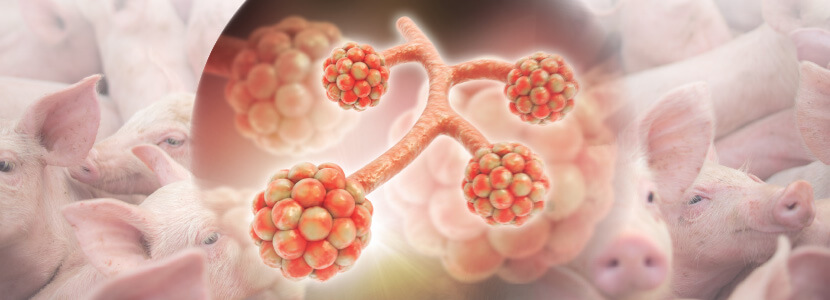
Differential diagnosis of respiratory processes in pigs
Desirée Martín Jurado Gema Chacón Pérez